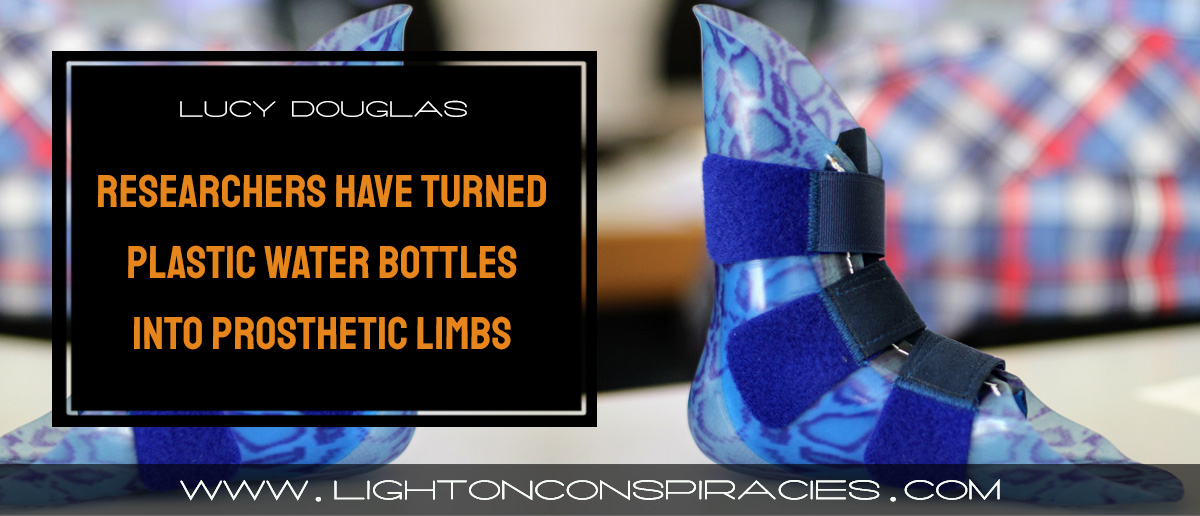The new product could provide low-cost alternative prostheses for amputees in developing countries, as well as help tackle plastic pollution
An engineer at De Montfort University has developed a prosthetic limb socket made from recycled plastic bottles. Prototypes of the prosthesis, which is believed to be the first made from recycled plastic, were successfully tested on two patients.
Dr Kandan, associated director at the Leicester university’s Institute of Engineering Sciences, used polyester yarns spun from the ground plastic bottles to make the prosthesis. It cost around £10 to produce, compared to an industry average of £5,000.
“Upcycling of recycled plastics and offering affordable prosthesis are two major global issues that we need to tackle,” Dr Kandan said. “We wanted to develop a prosthetic limb that was cost effective yet comfortable and durable for amputee patients.”
The aim of the project was to find a low-cost alternative material for prosthetic limbs, and was funded by the Global Challenges Research Funding (GCRF), which supports research to address challenges faced by developing countries, as well as the UK-based Academy of Medical Science.
Dr Kandan also collaborated with prosthetics researchers from the Universities of Salford, Southampton and Strathclyde, and worked with the Bhagwan Mahaveer Viklang Sahavata Samiti (BMVSS) in Jaipur, India, which is the world’s largest organisation for rehabilitating disabled people.
“We manufactured the socket at DMU and then travelled to India to trial it with two patients – one who had his leg amputated above the knee, and one who had his leg amputated below the knee,” explained Dr Kandan.

Two patients try out prosthetic limbs made from recycled plastic
“Both patients were really impressed – they said the prosthetic was lightweight and easy to walk with, and that it allowed air to flow to the rest of their leg, which is ideal for the hot climate in India.”
Globally, an estimated 100 million people have had a limb amputated; the two most common causes are believed to be diabetes and road traffic accidents, both of which are on the rise.
Image: Lucas Vasques
Fed up with negative news? Can you help us?
The negativity bias in the media is holding society back. While it’s important to report problems and hold power to account, we believe there is also a need for rigorous reporting on progress, possibility and solutions. We call this ‘constructive journalism’, and to keep doing it we need your help.
We know you want Positive News to benefit as many people as possible, so we haven’t put up a paywall. We don’t answer to and rely on a wealthy proprietor because, instead, we are owned co-operatively by 1,500 of our readers who joined our crowdfund in 2015. And we’re not beholden to advertisers either, because we know that you only want to hear about companies that have a positive impact.
So, instead, we depend on you. Positive News is more than a magazine, it’s a community of people who see and share the good in the world. We need your support to continue publishing our inspiring journalism and to set the example for other media to follow. It’s quick and easy to contribute and you can support Positive News from just £1. Every contribution makes a vital difference. Thank you for helping us to change the news for good.












